As with all fields, AI is transforming sales.
Salespeople are leveraging tools that streamline processes, save time, and create a more personalized experience for leads.
In this post, learn more about how B2B salespeople leverage AI, and how you can adopt it into your processes.
Table of Contents
- How do B2B salespeople feel about AI?
- Top Ways B2B Sales Teams Are Using AI/automation
- Tips for Building a B2B Sales AI Strategy
- The Future of AI in B2B Sales
How do B2B salespeople feel about AI?
A majority of B2B sales pros say AI/automation is important to their role and has impacted how they plan to sell. Click the interactive graph below to see some key stats to know.
They also say the biggest benefit of using AI/automation in a B2B sales process is its time-saving qualities.
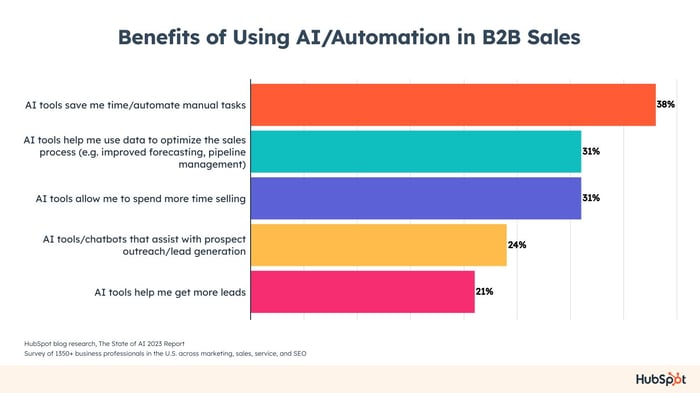
With this in mind, how are they using it?
Top Ways B2B Sales Teams Are Leveraging AI
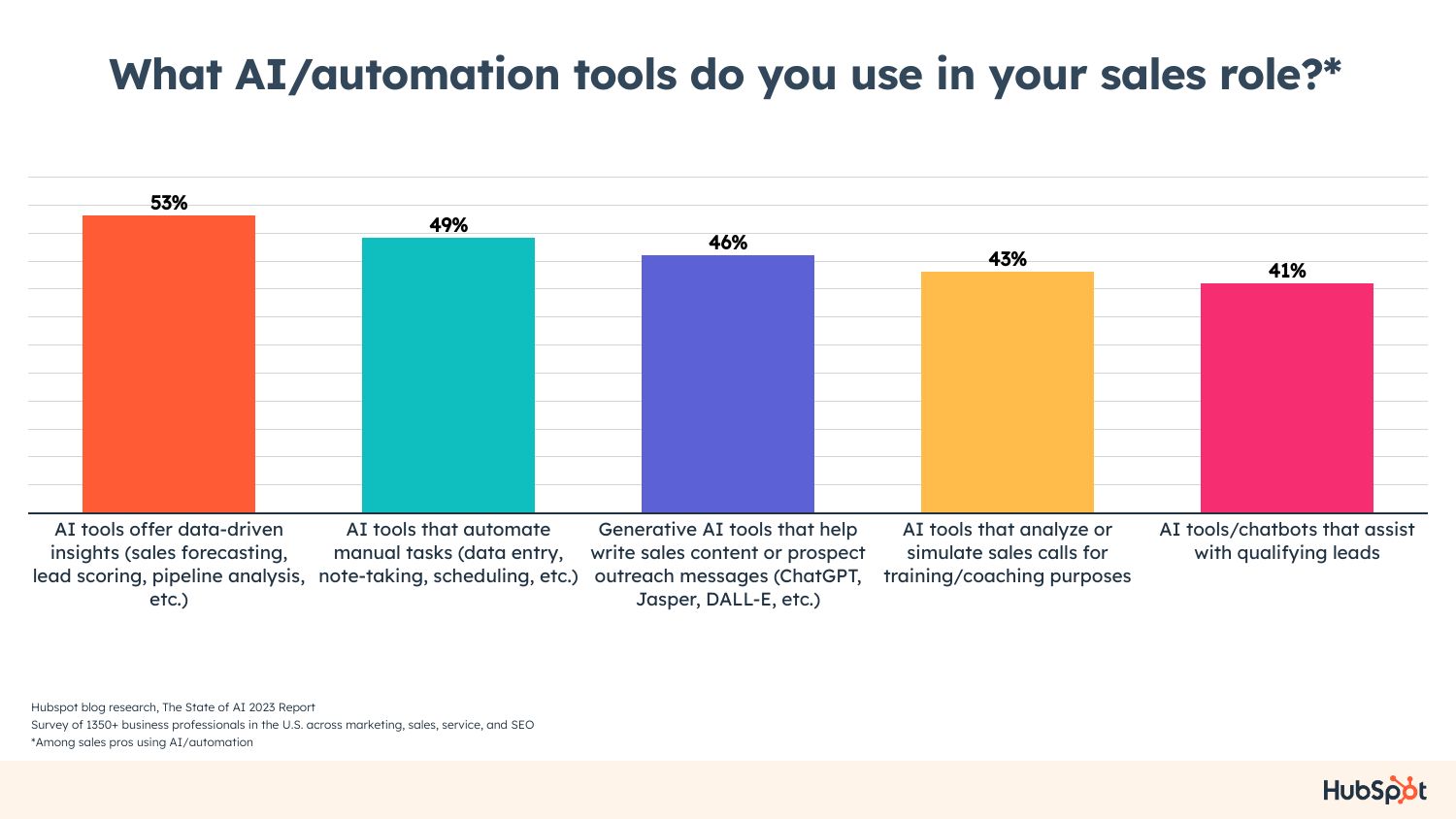
1. Optimizing the sales process with data.
Sales reps who currently use AI/automation in their role say they most often use AI/automation tools that offer data-driven insights, like sales forecasting, lead scoring, pipeline analysis, etc.
B2B reps also say the second biggest benefit to using AI/automation tools in their sales role is that AI helps them use data to optimize their process. This aligns with findings from our Sales Strategy & Trends Report, which noted salespeople are finding data increasingly important in their sales strategy.
Leveraging these data-driven tools are an effective strategy, as reps say they’re the second most effective AI/automation tool to help them reach their goals.
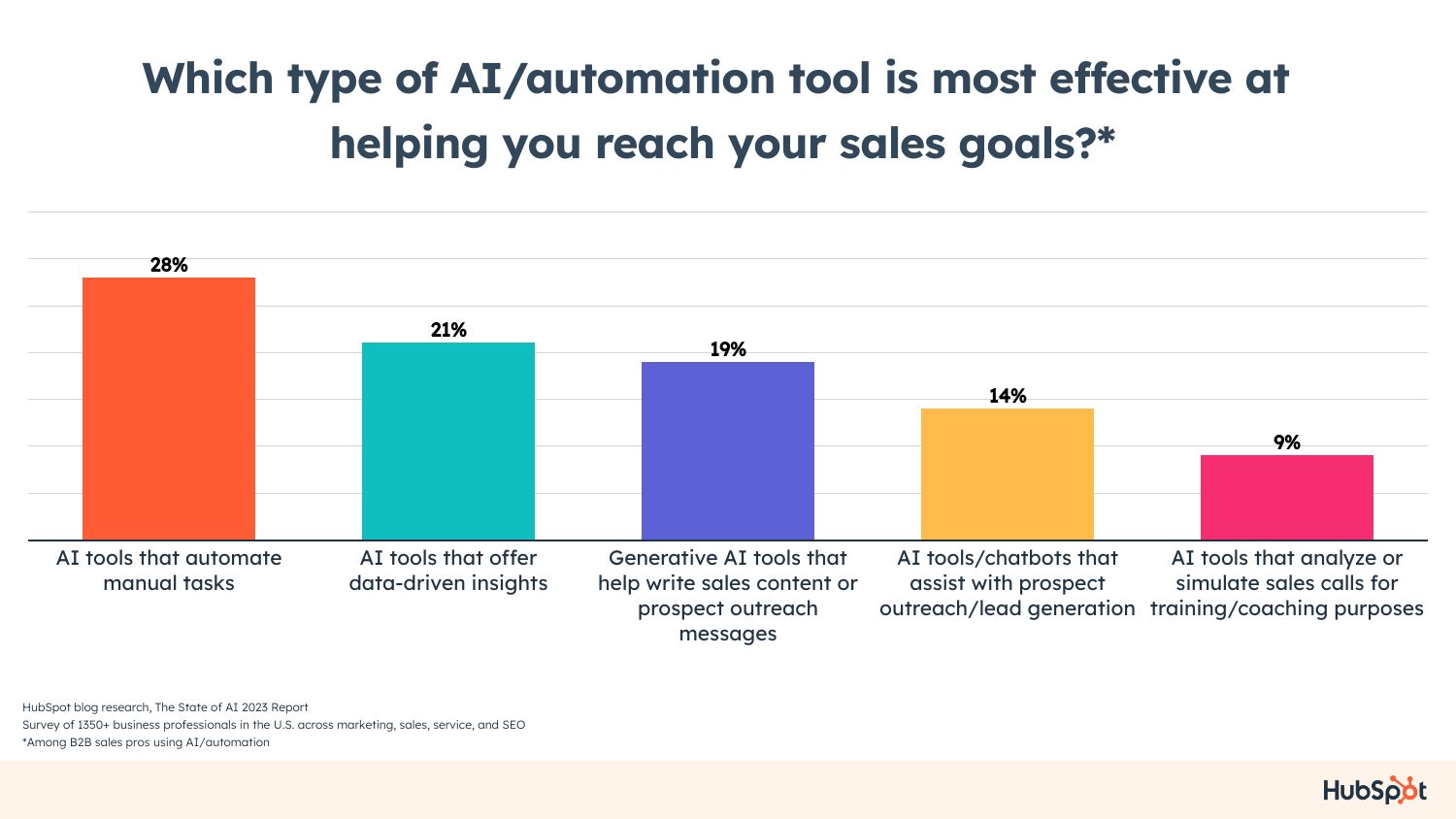
2. To save time on manual tasks to focus on selling.
The second most significant sales goal during 2022 was making the sales process more efficient. And one in five reps reported the most significant reason prospects back out of deals is because the sales process takes too long.
Our State of AI survey found that AI tools that automate manual tasks (like data entry, note-taking, scheduling, etc.) are the second most used tool, and 69% say AI/automation tools help them spend more time selling.
Overall, sales pros using these tools save an average of 2 hours and 16 minutes daily automating manual tasks. And 71% of sales leaders say AI/automation makes their employees more productive.
As a whole, AI tools are making the sales process more efficient by taking over routine tasks that might take reps away from the valuable time they can spend doing high-impact tasks, like creating unique value propositions, helping them create a more efficient and value-forward sales process. This is only further emphasized by salespeople saying that AI/automation tools that automate manual tasks are the most effective at helping them reach their goals.
3. To write content and outreach messages.
Generative AI tools (like ChatGPT) that help write sales content or prospect outreach messages are the third most popular use case for sales reps.
The top ways reps use generative AI are:
- Repurposing messages and adapting them to different audiences (like asking AI to turn a message to a small business owner into a message to a decision-maker at a large company)
- Writing messages to prospects
- Repurposing messages to prospects by adapting them to different formats (like turning an email into a LinkedIn message)
When prospecting, it’s most useful for repurposing messages and adapting them to a different audience. And, 91% of sales pros say using generative AI to write sales content or prospect outreach messages say the tools are effective at helping them reach their goals.
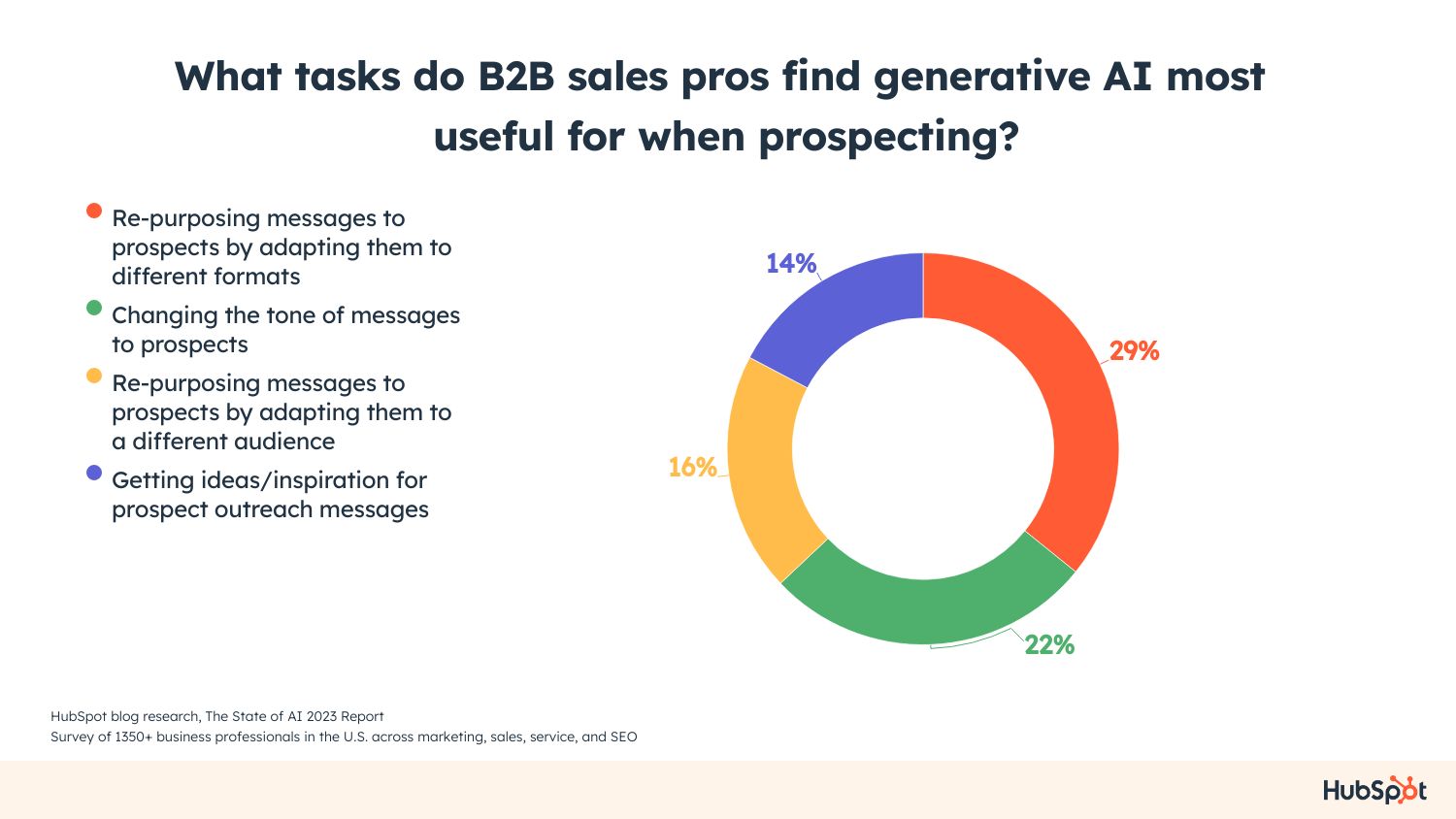
Tips for Building a B2B Sales AI Strategy
1. Assess all the ways you can use AI.
We mentioned the top three use cases for AI among B2B salespros overall, but there are a variety of additional ways you can apply it based on your own needs. For example, salespeople also use AI to:
- Simulate sales calls and help with training and development
- Qualifying leads with chatbots
- Using chatbots for prospect outreach and lead generation.
You may find that you’re most focused on providing value to your customers, so you can use time-saving AI tools to take over routine processes so you have more time on your hands to learn more about your customers and prepare for important conversations and outreach.
2. Lean into personalization.
Consumers have access to more information than ever, so when they talk to a sales rep, they want more focused conversations about how your solutions apply to them. With this in mind, a valuable tip is to leverage AI to help you increase personalization — 69% of reps say it helps them personalize the customer experience.
You can leverage generative AI to create personalized responses to customer emails or lead qualification tools that assess leads and help you learn more about them before making contact.
Survey respondents said that AI/automation tools help make prospecting and outreach efforts more personalized.
3. Leverage AI analytics tools for all they’re worth.
Sorting through data is a time-consuming process and can pull you away from focusing on the most important aspects of your job and the tasks you enjoy the most.
So, leverage AI analytics tools for all they’re worth to save you time, get access to real results at a faster rate, and make data-backed decisions.
With AI analytics tools, you can:
- Enrich your CRM data with data from third-party sources to get a full view of your leads and customers.
- Use predictive scoring tools to identify the most high-quality leads.
- Forecast and get accurate projections to help you guide decisions and address potential roadblocks.
- Improve your training process with conversational intelligence tools that assess sales calls and see what works and what doesn’t.
4. Don’t let AI take over your strategy.
Sales reps reported that AI tools are helpful for various sales processes and that automation helps them meet their sales goals. But, they also believe salespeople shouldn’t become overly reliant on AI (73% say this).
For example, salespeople use generative AI to write messages to prospects and other types of sales enablement content. But, 78% make edits to the generative outputs they get instead of copying and pasting and sending it off, meaning they’re still involved in the process.
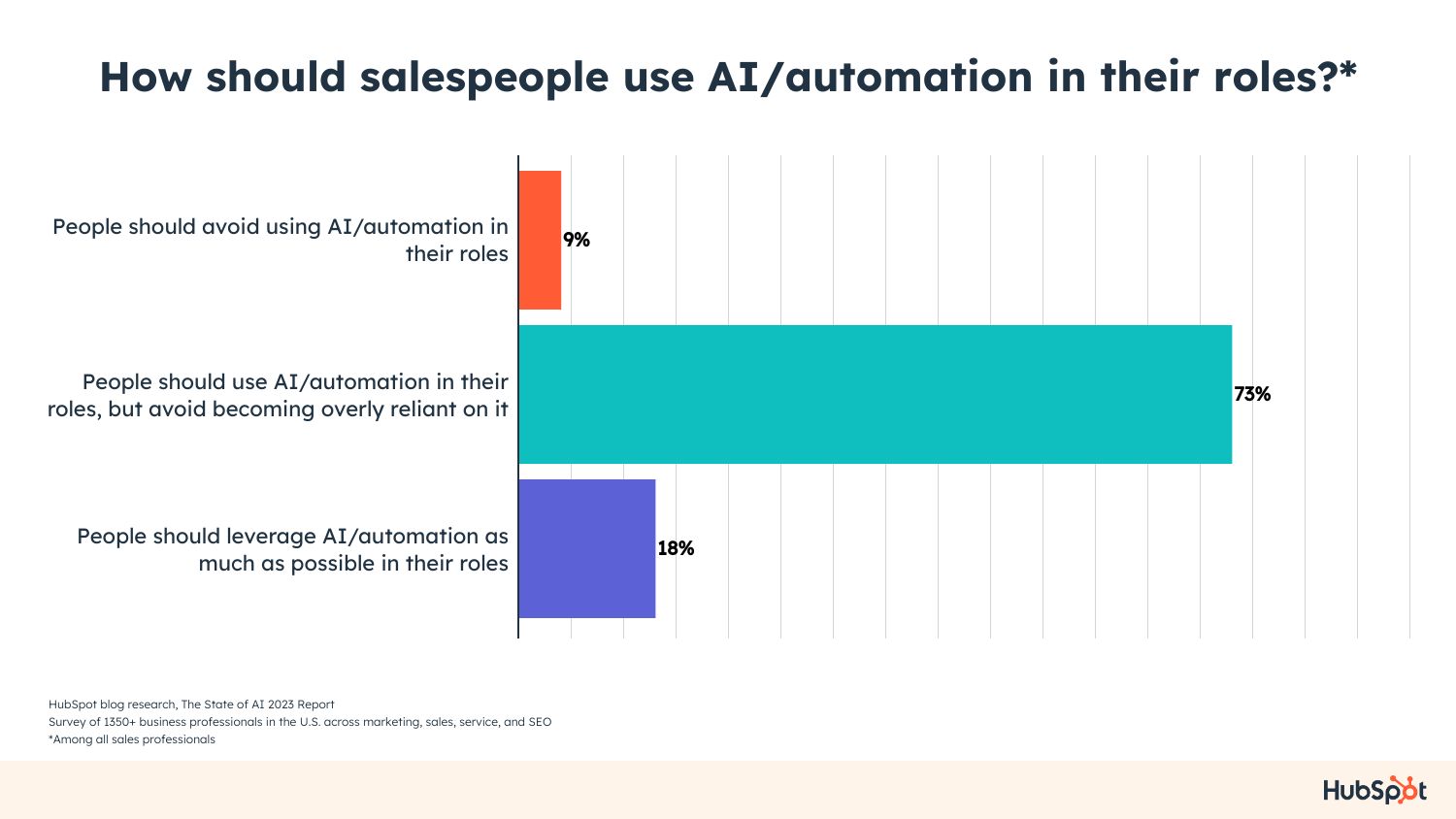
Aim to use AI tools to assist and supplement your processes and strategies, but not take them over. In fact, becoming overly reliant on AI/automation tools is the number one reason reps who don’t already use AI/automation tools are holding back.
The Future of AI in B2B Sales
AI is blowing up right now, but what happens next year? Most salespeople believe that AI/automation will be involved in most aspects of sales — the software they use will have built-in AI, chatbots will answer their questions, and AI tools will assist them with their day-to-day tasks.
Perhaps most interesting is that 53% of B2B salespeople specifically say that AI/automation will be advanced enough to reach out to prospects independently.
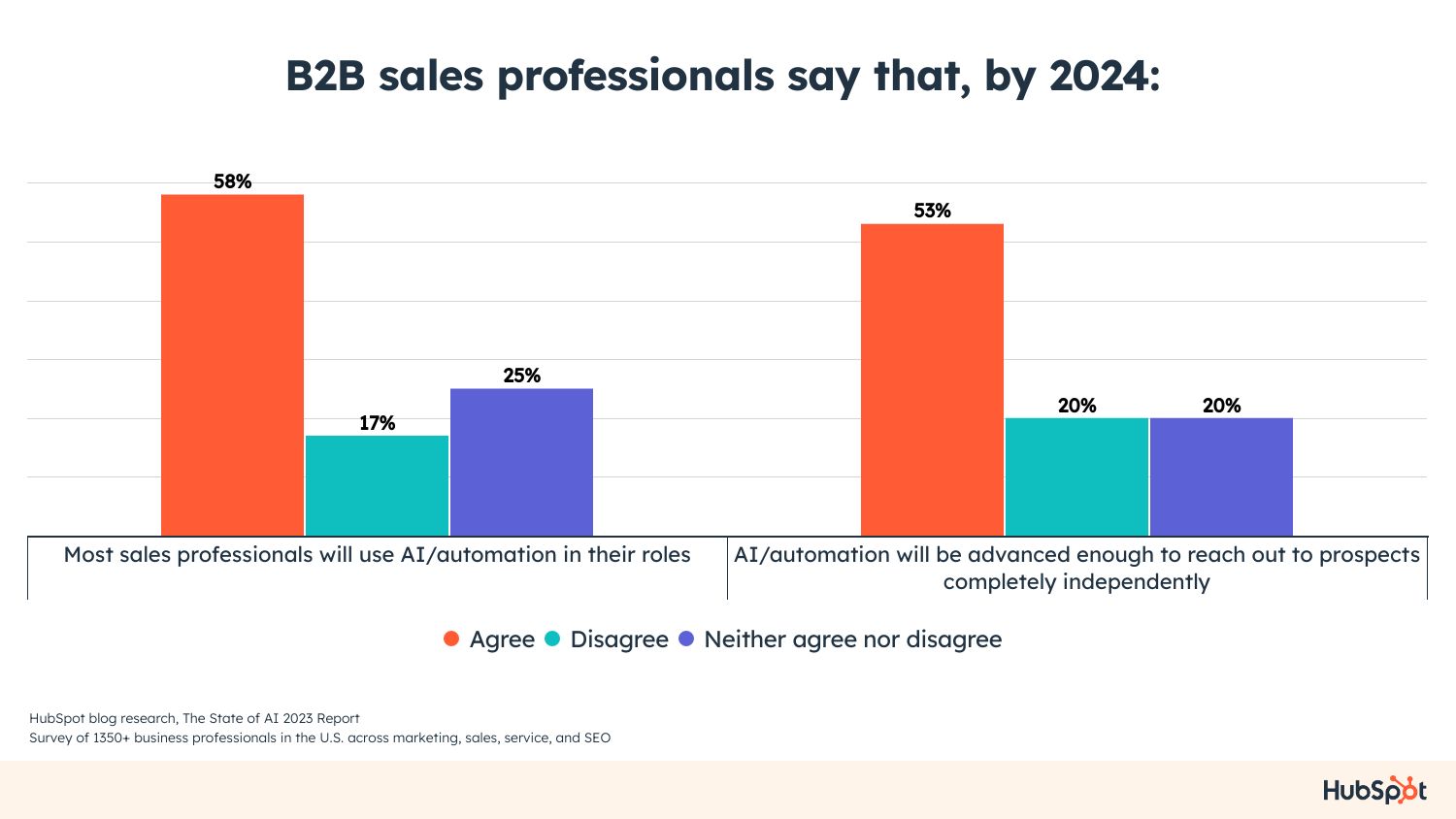
Over to You
There is no one size fits all approach to using artificial intelligence in your sales process, so it’s helpful to understand what others are doing.
If you want to learn more about how to apply AI in sales, check out the State of AI in Sales Report.
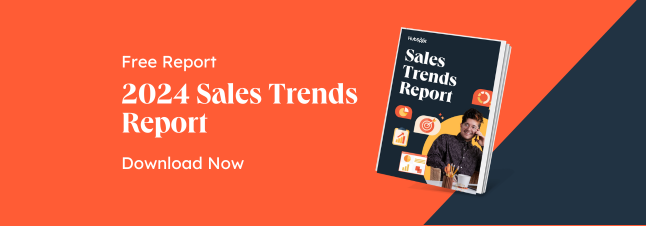
![]()

![You are currently viewing AI in B2B Sales: How It’s Used and It’s Biggest Benefits [New Data]](https://www.dimaservices.agency/wp-content/uploads/2023/06/9cdc68ed-d735-4161-8fea-0de2bab95cef-1.png)
